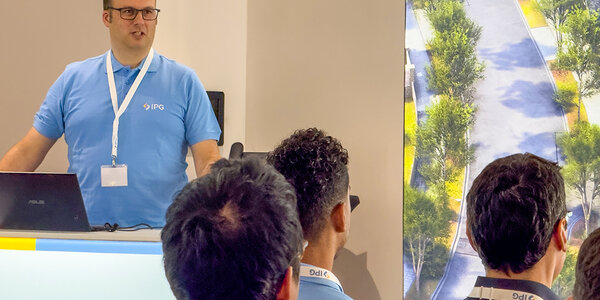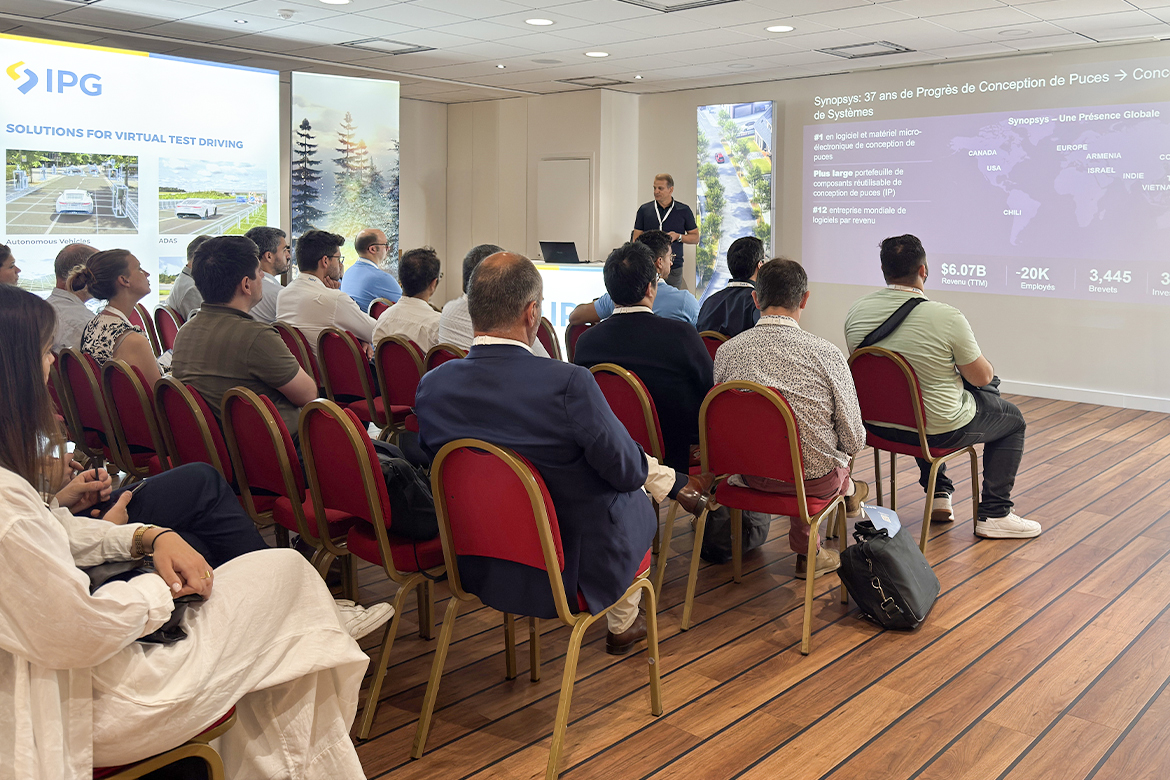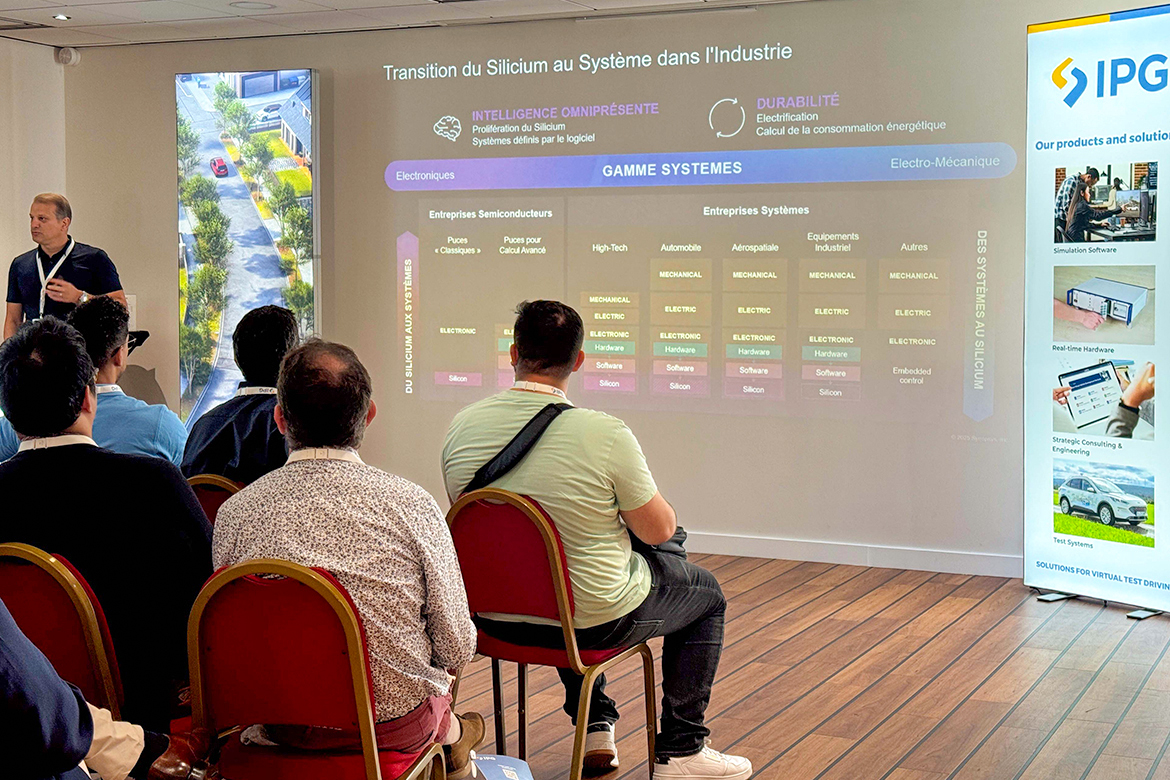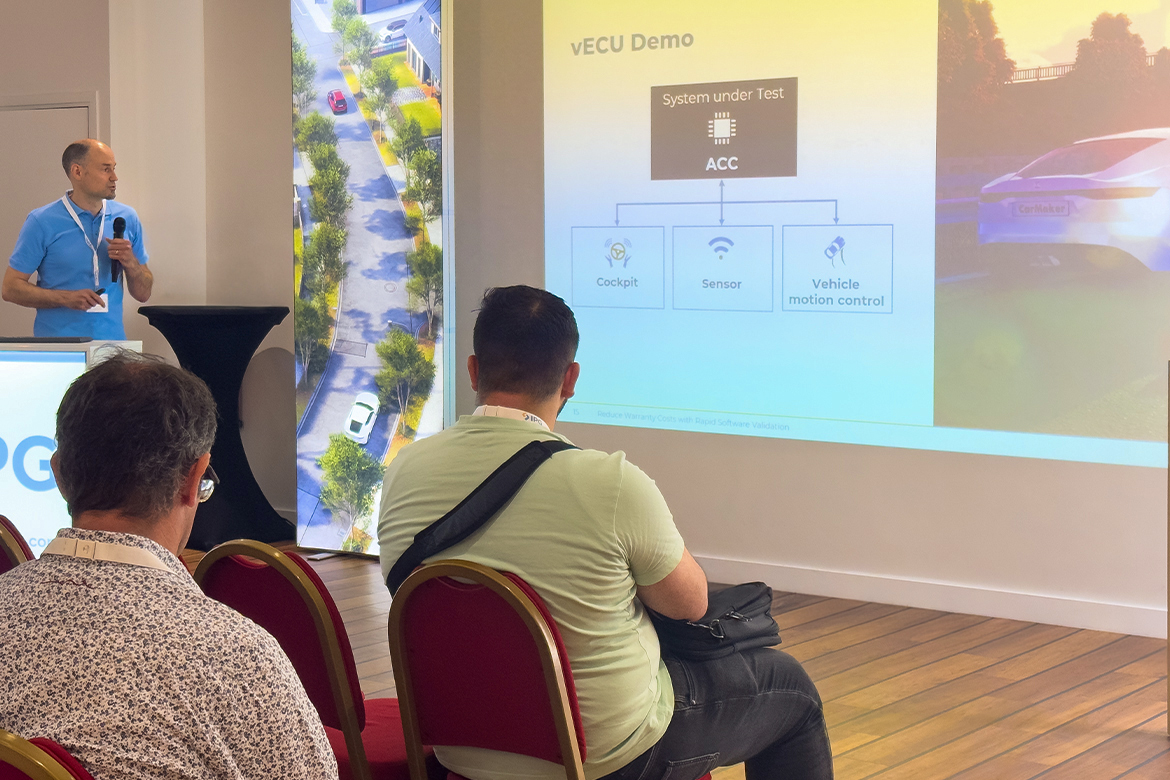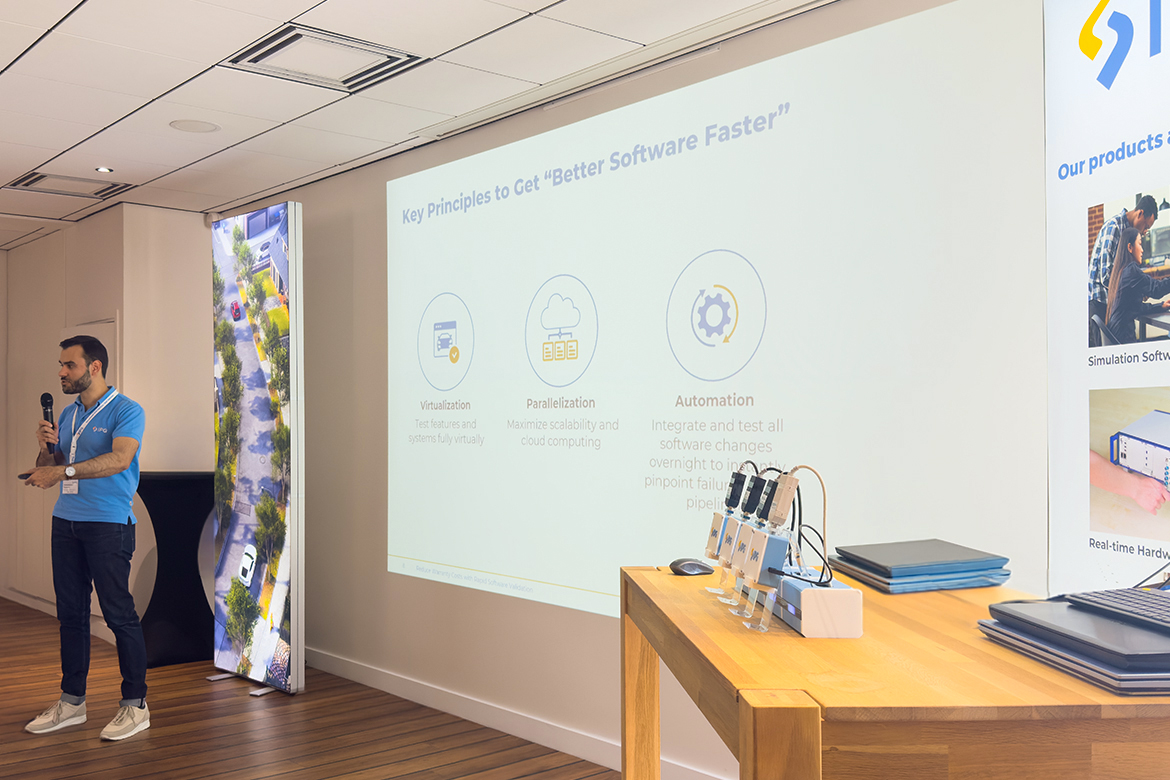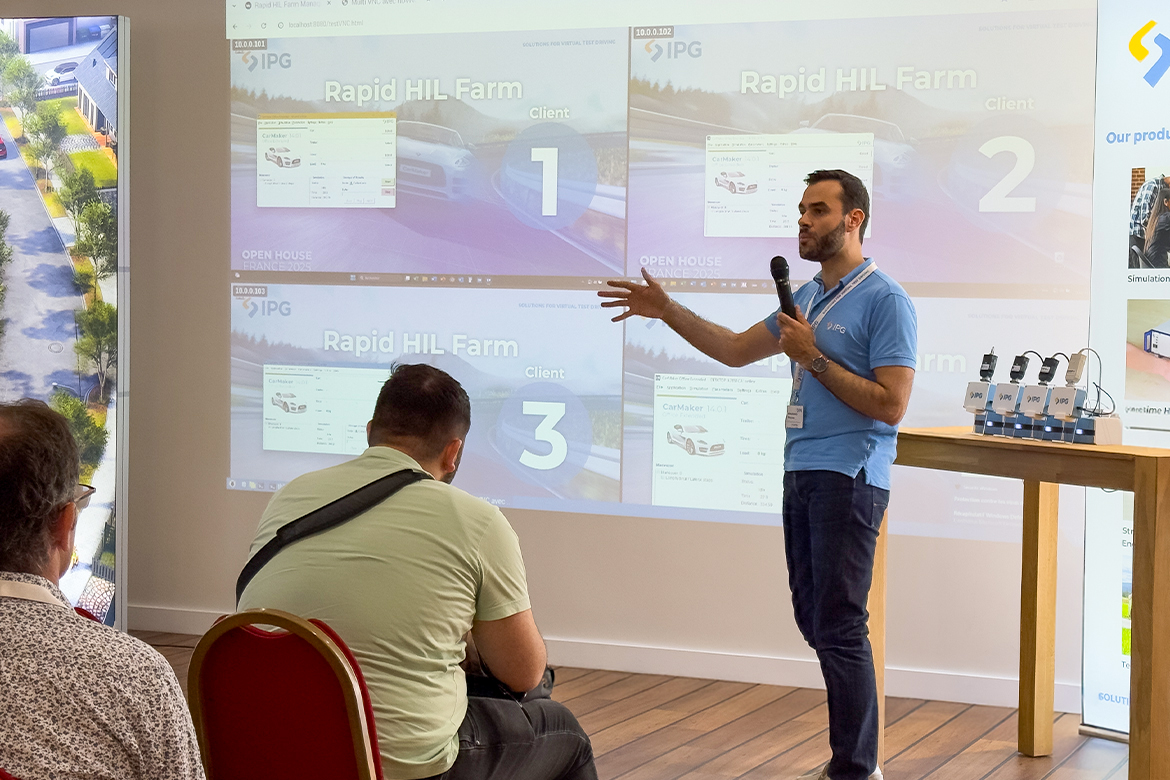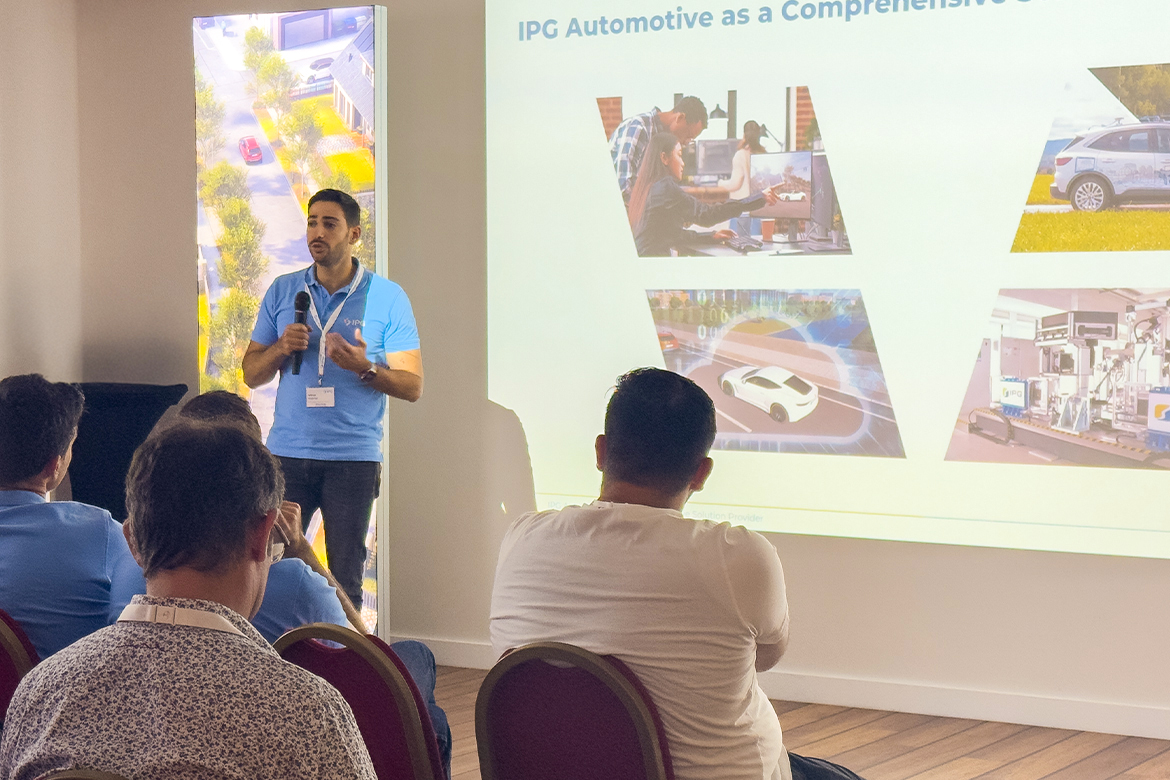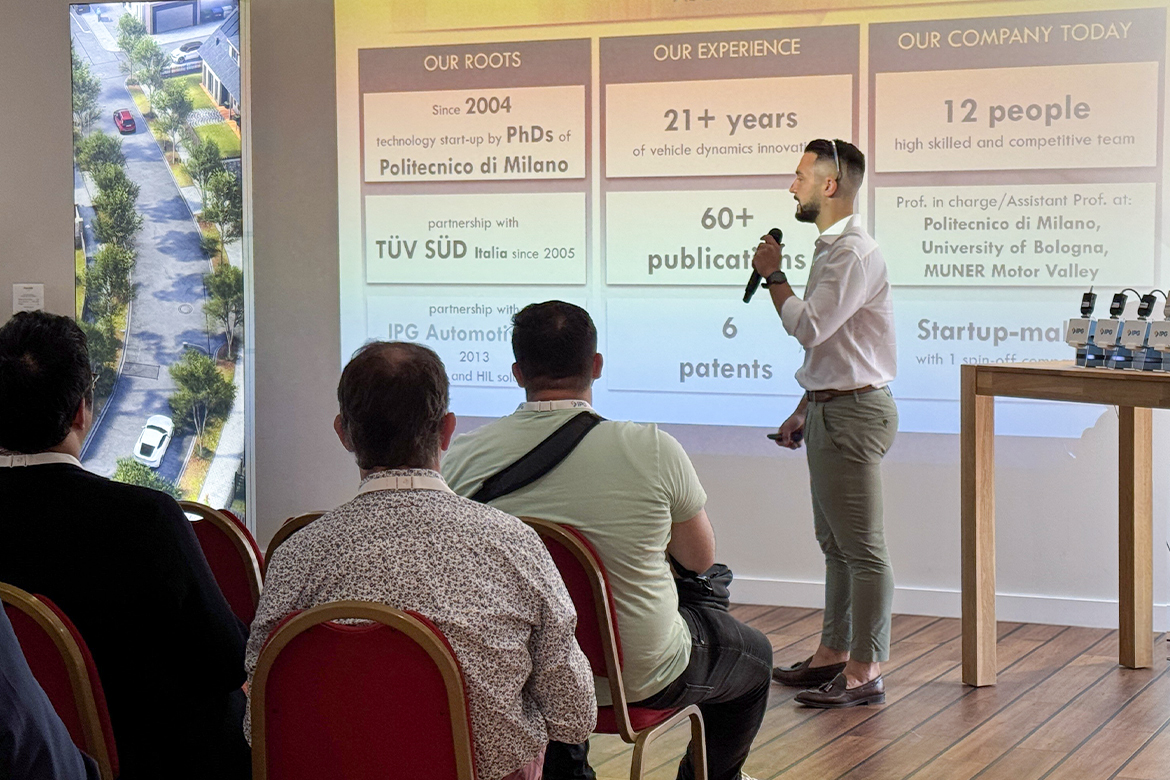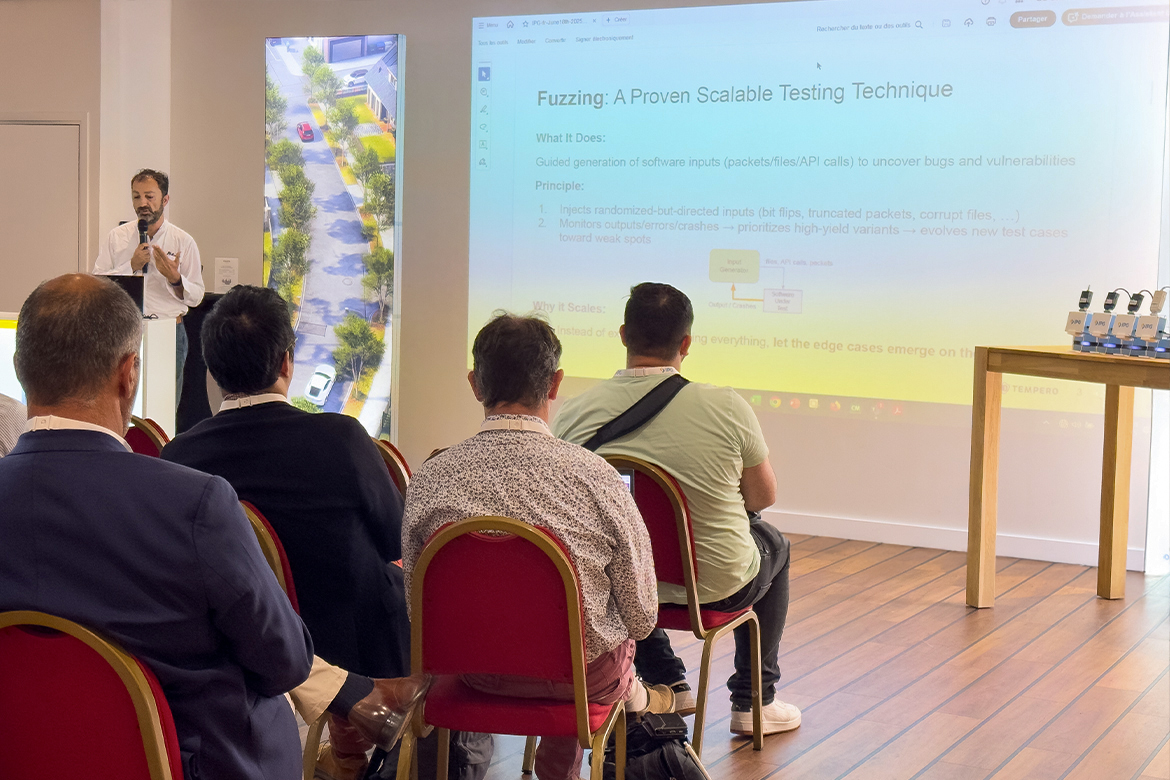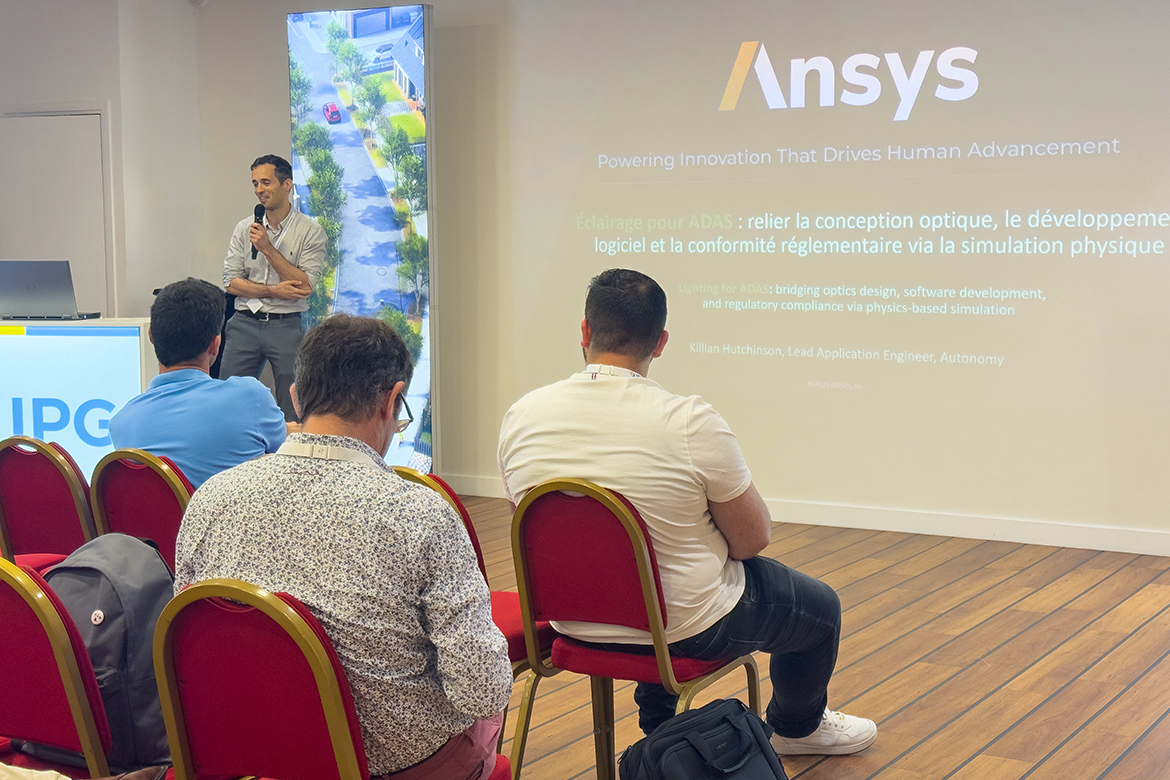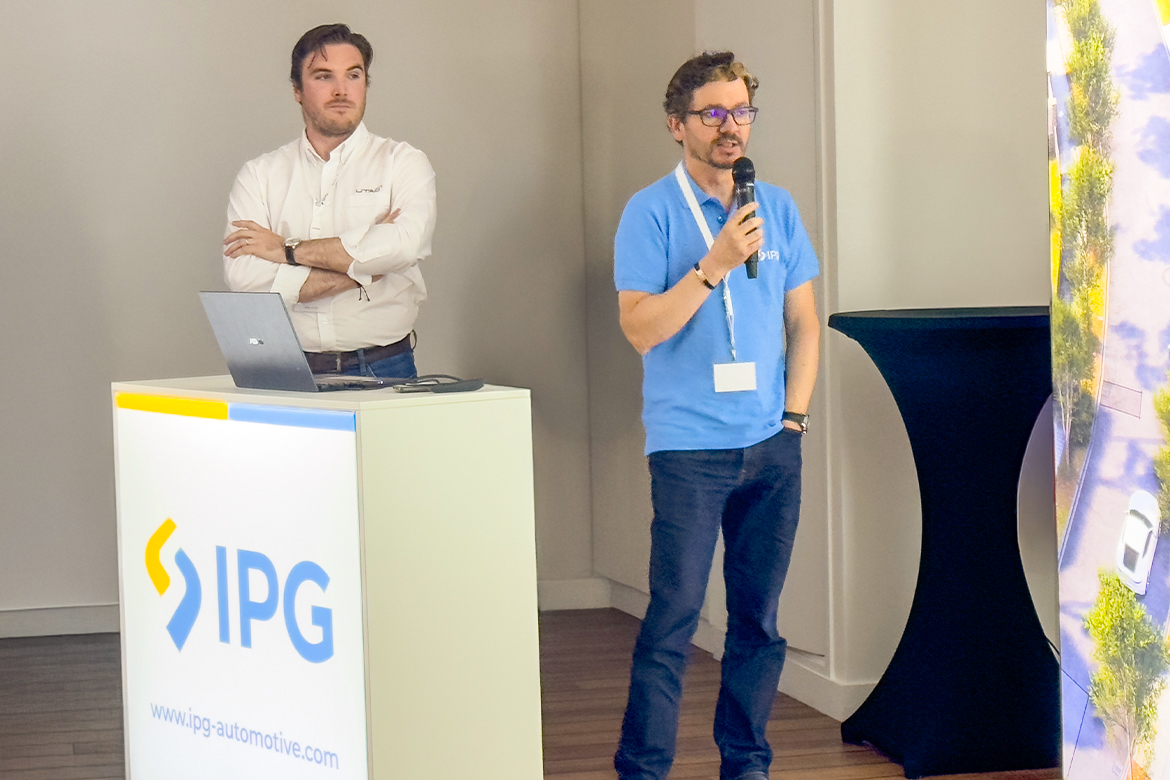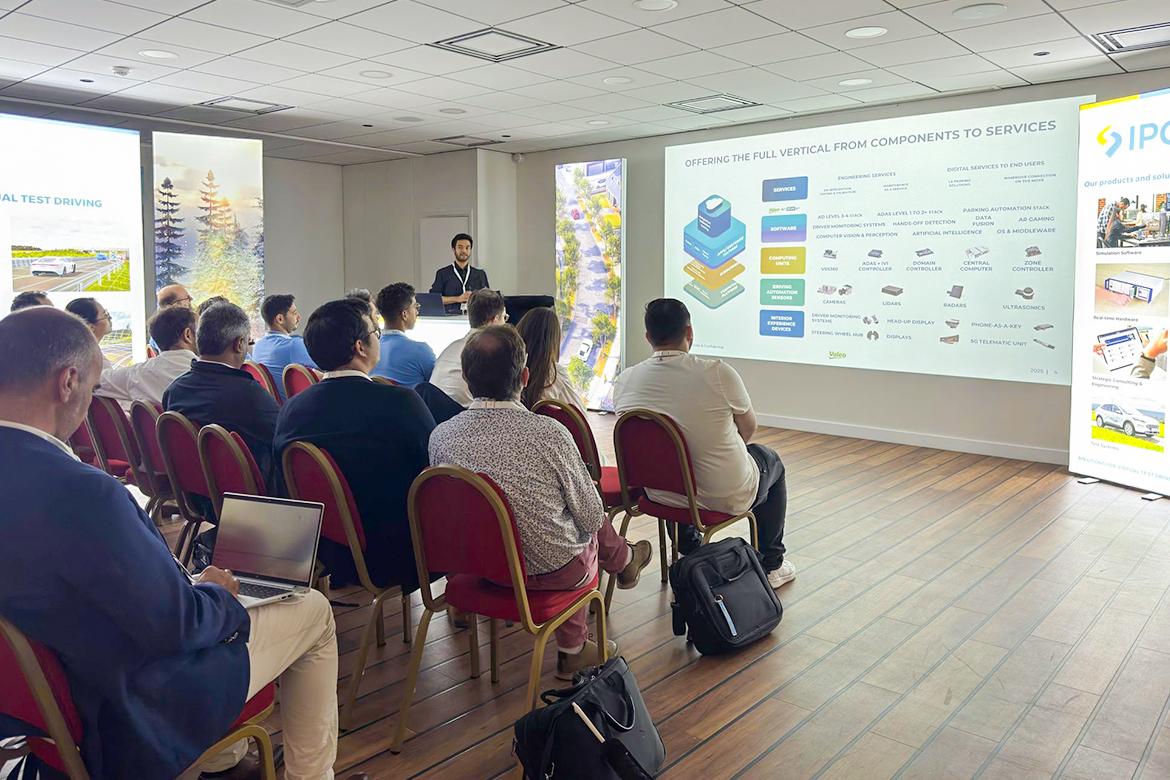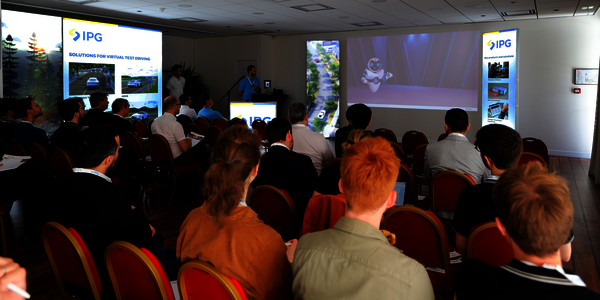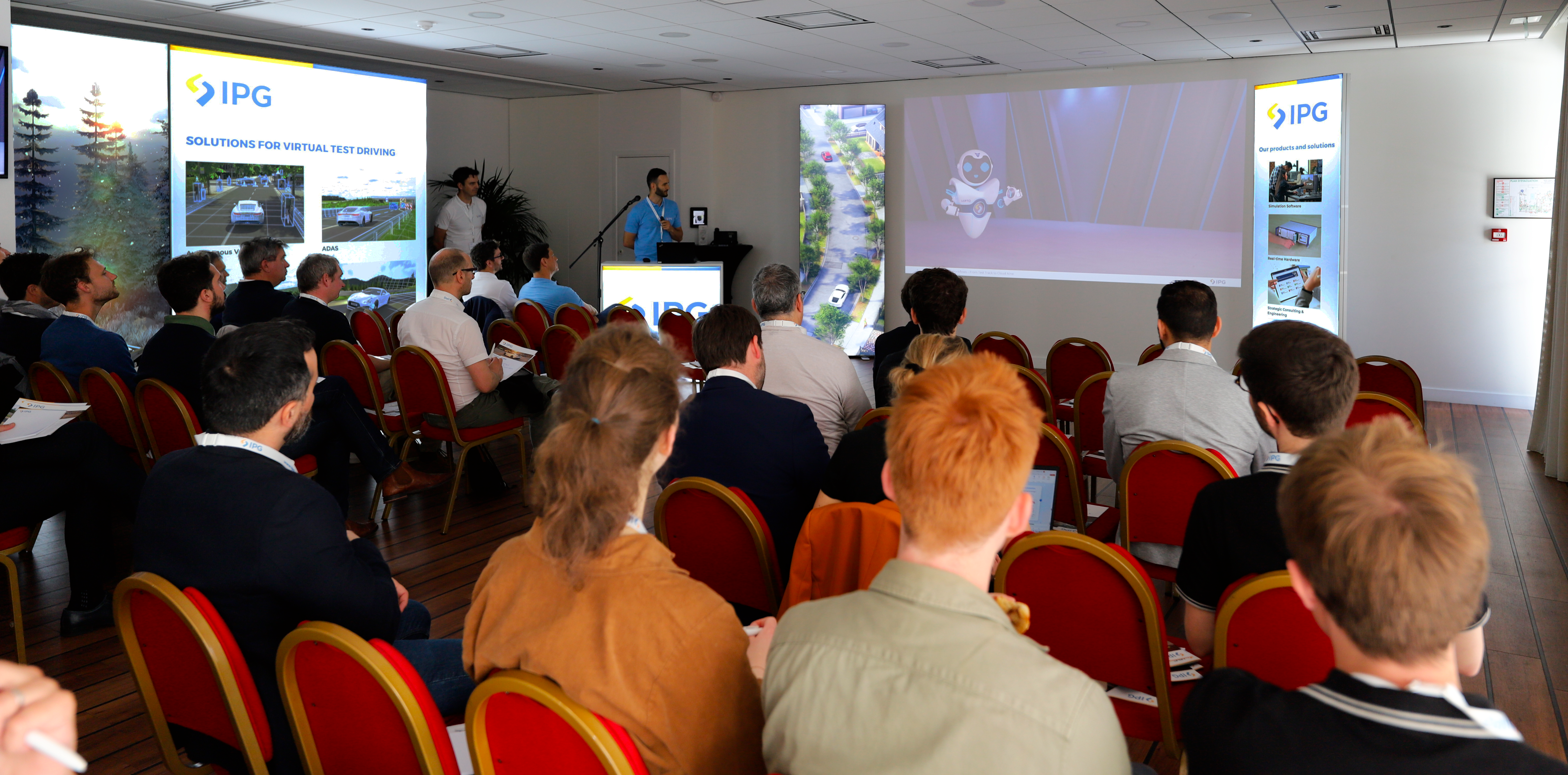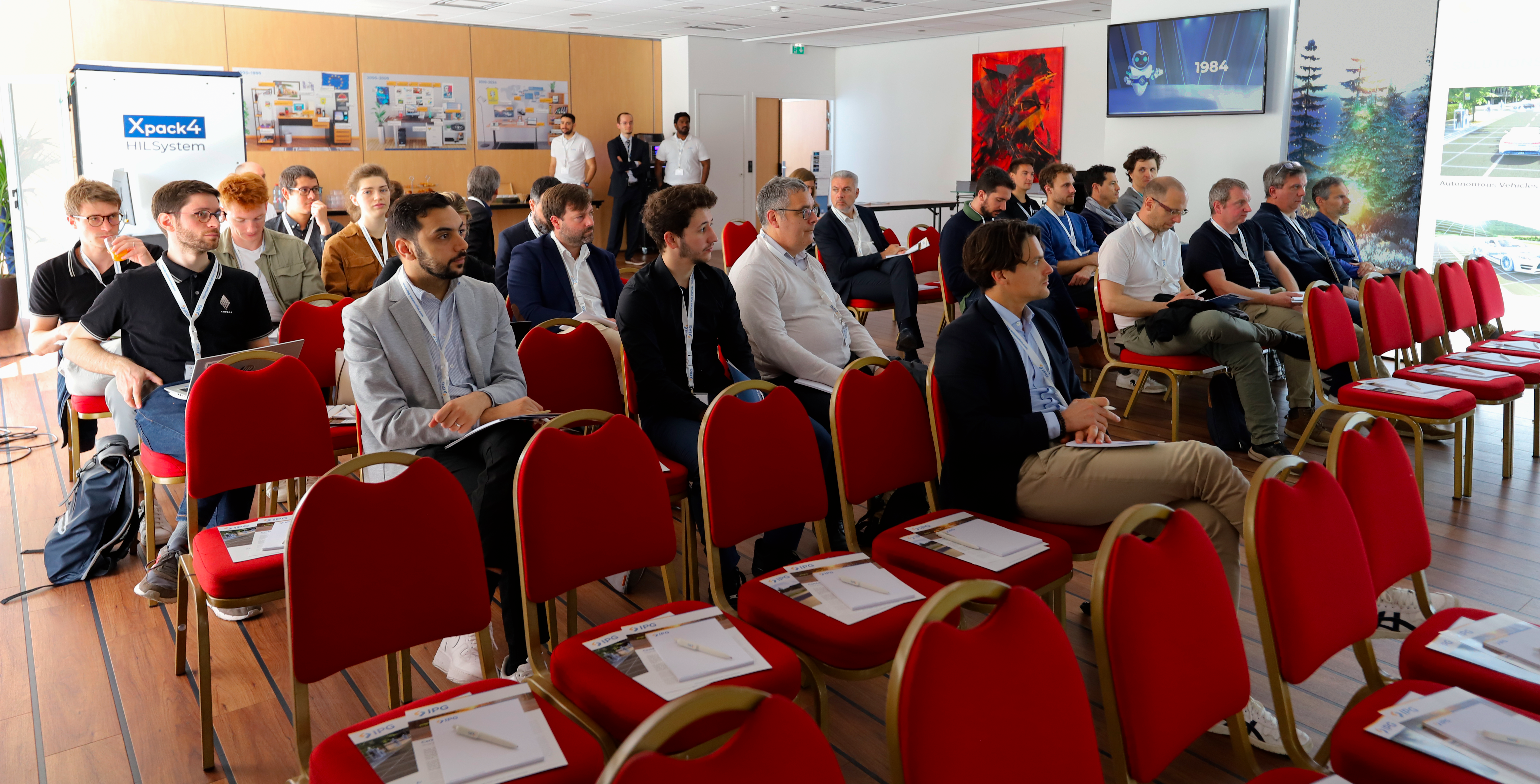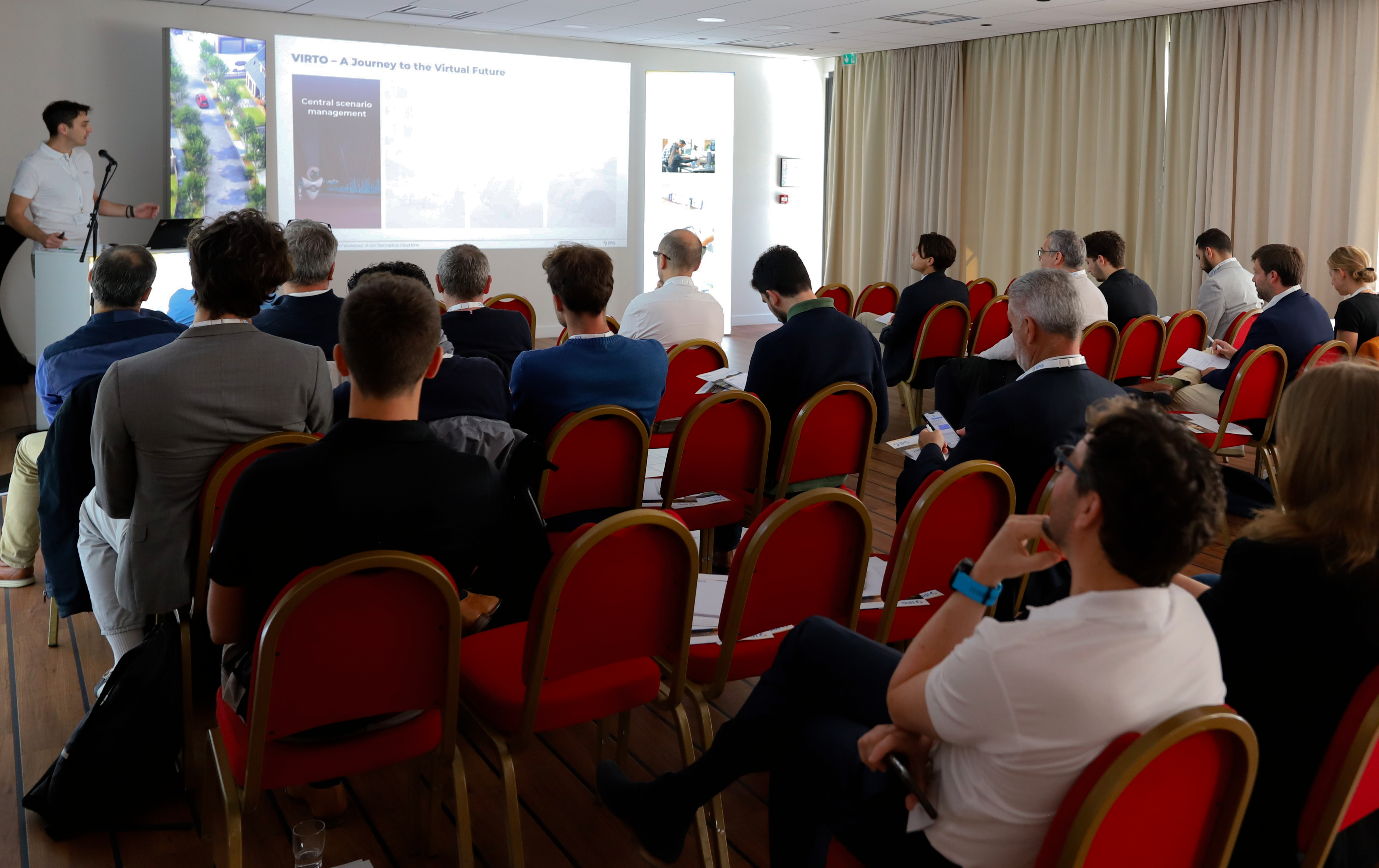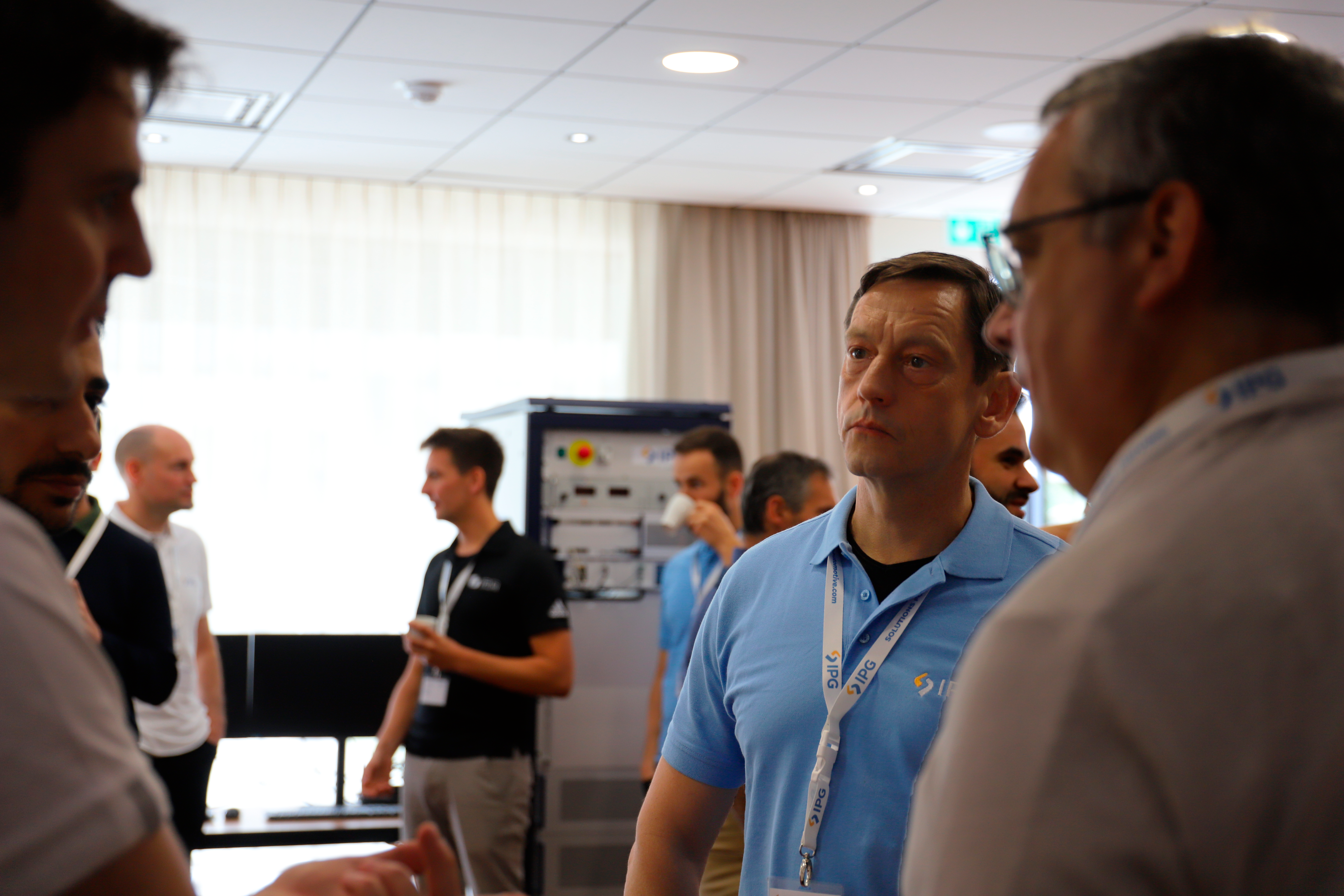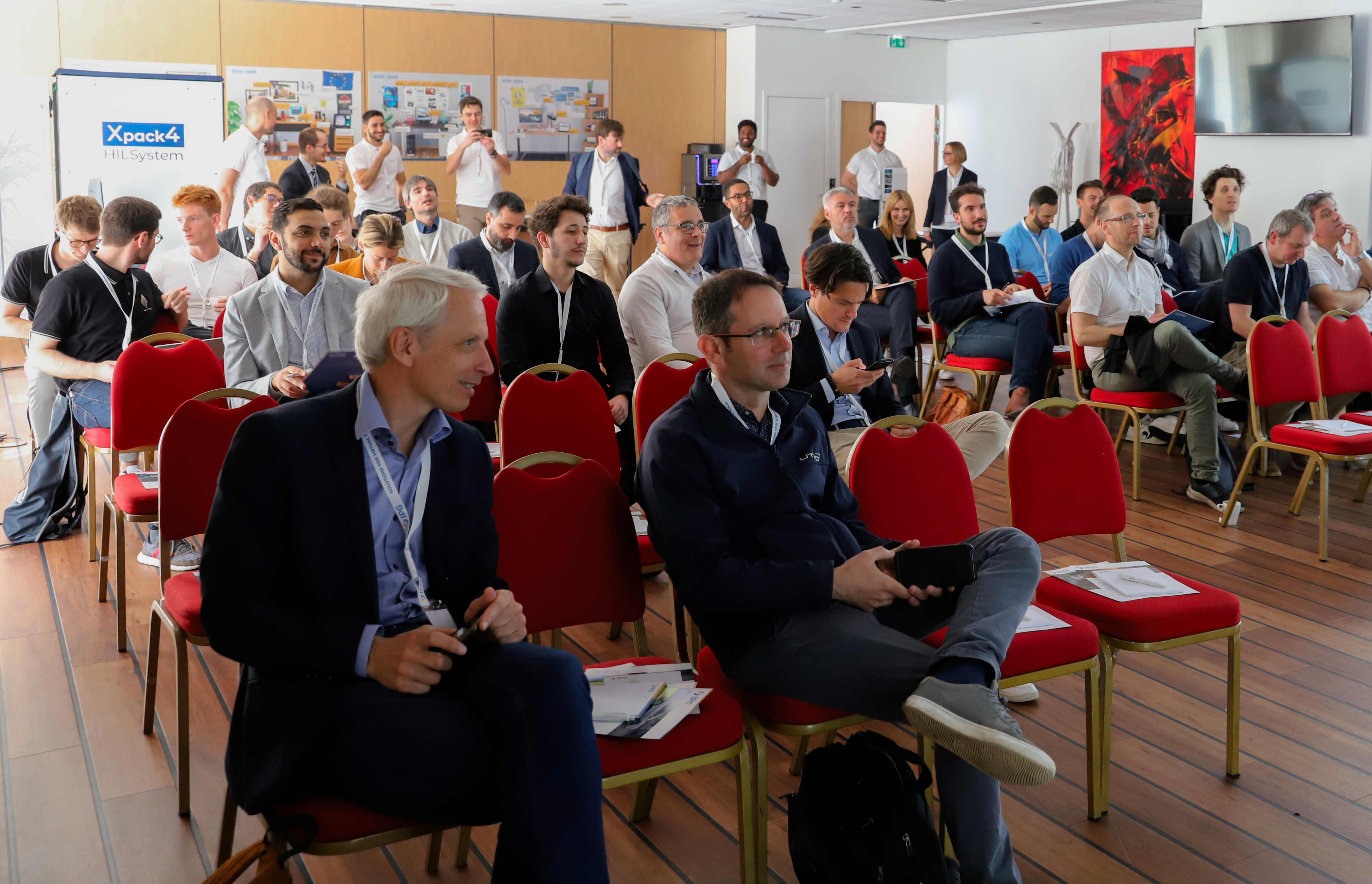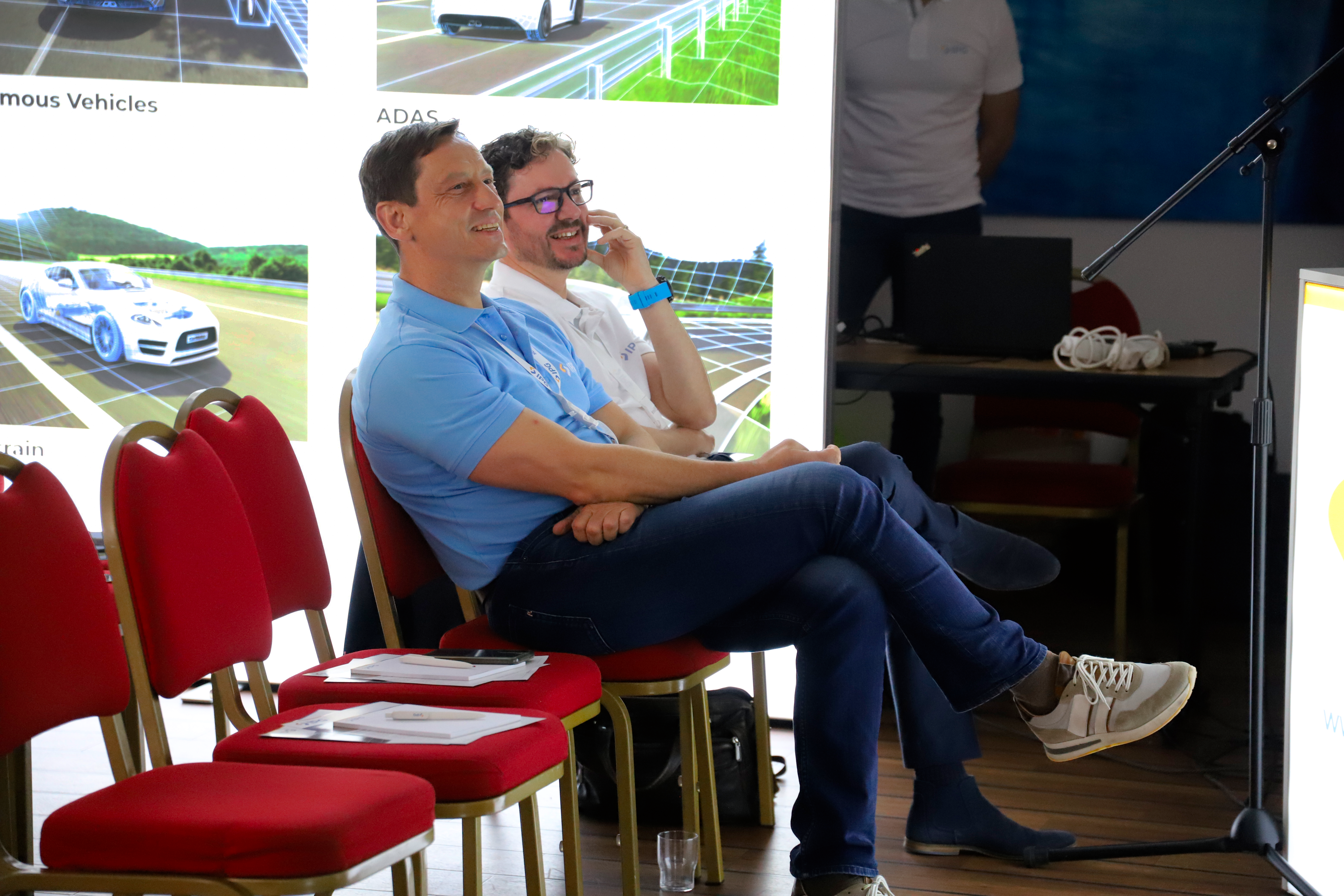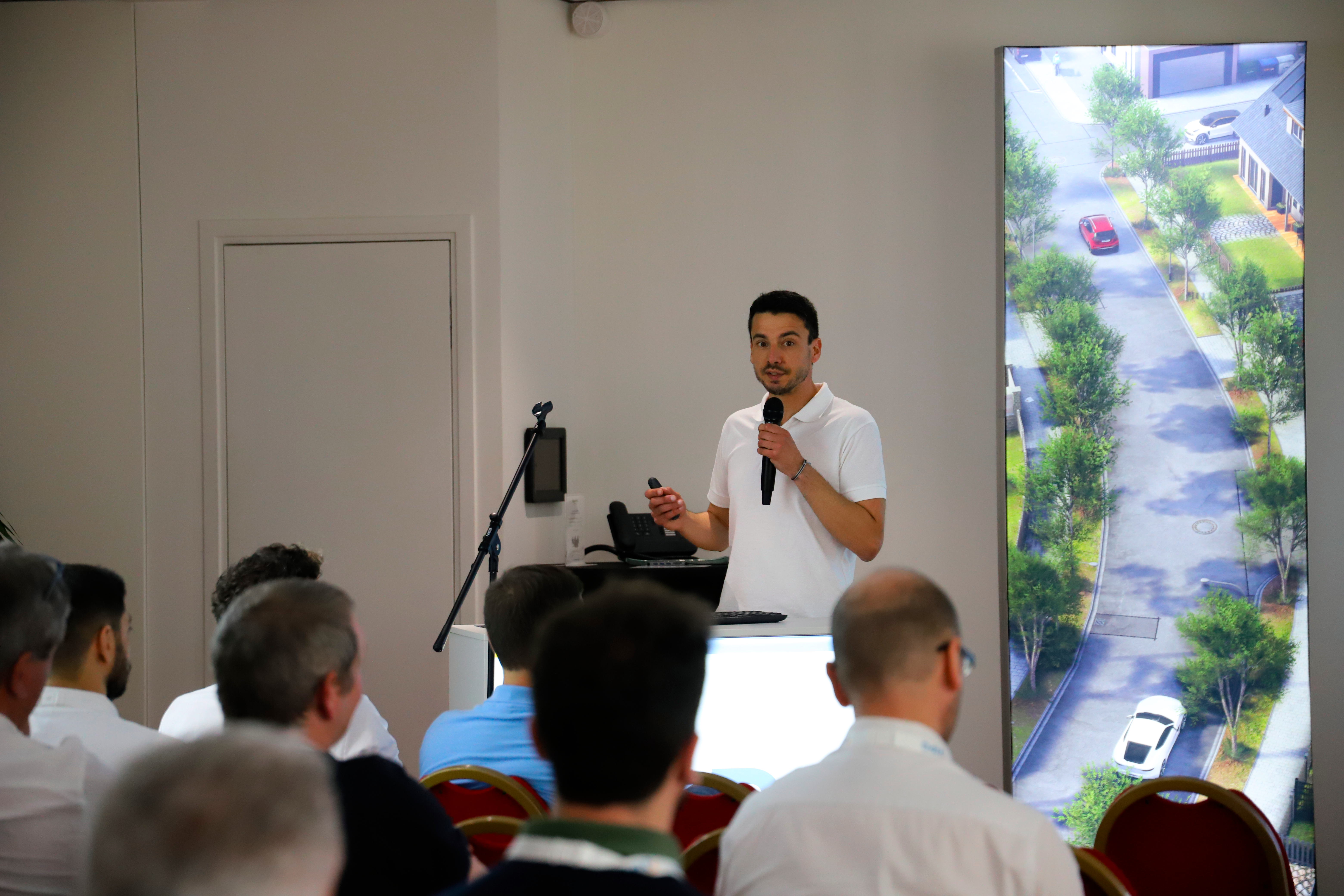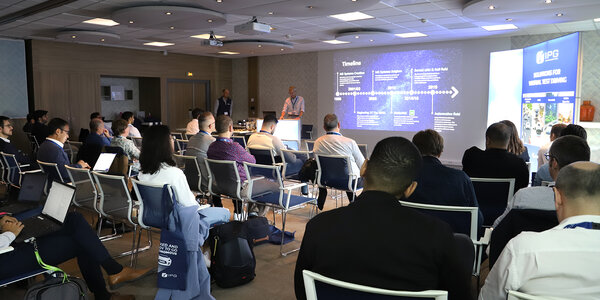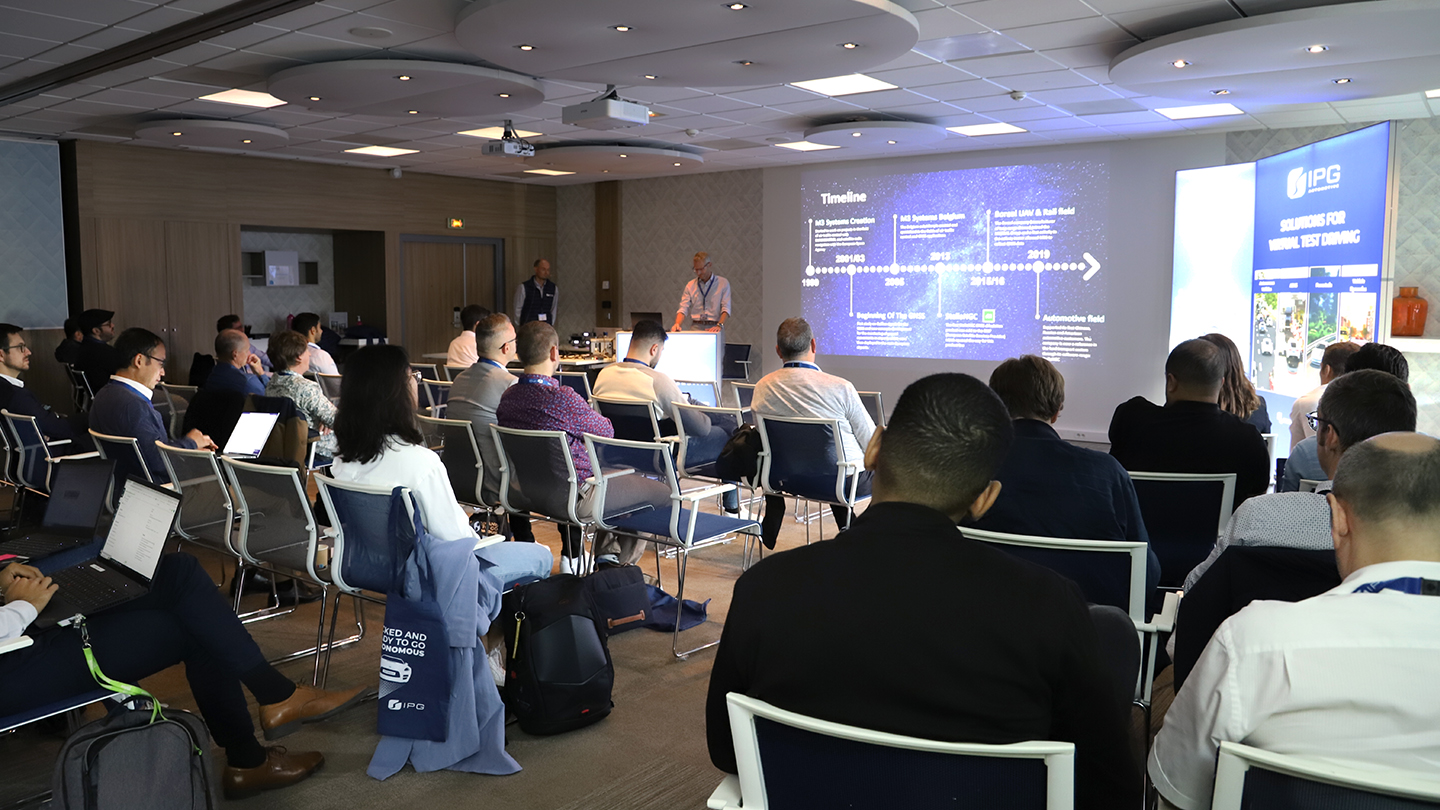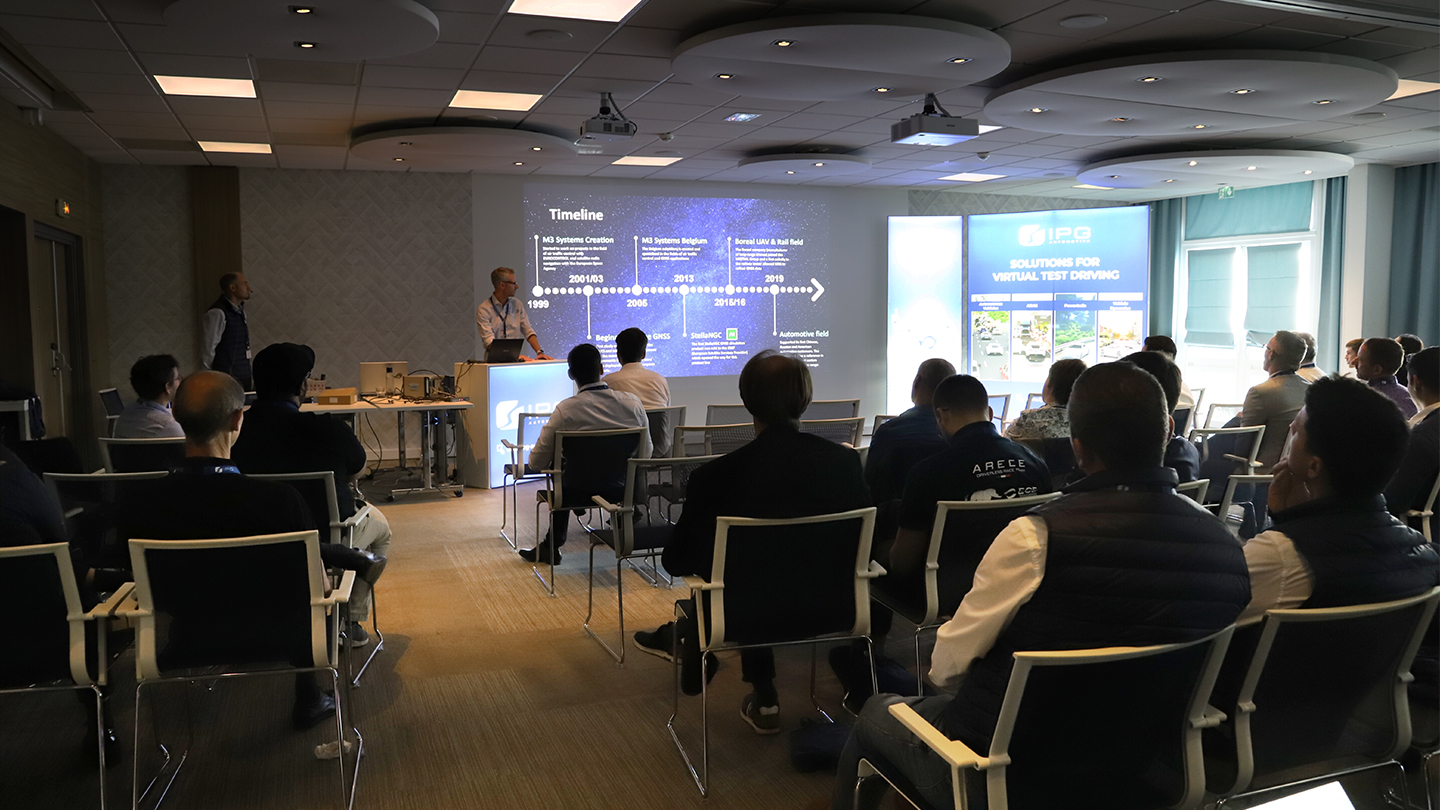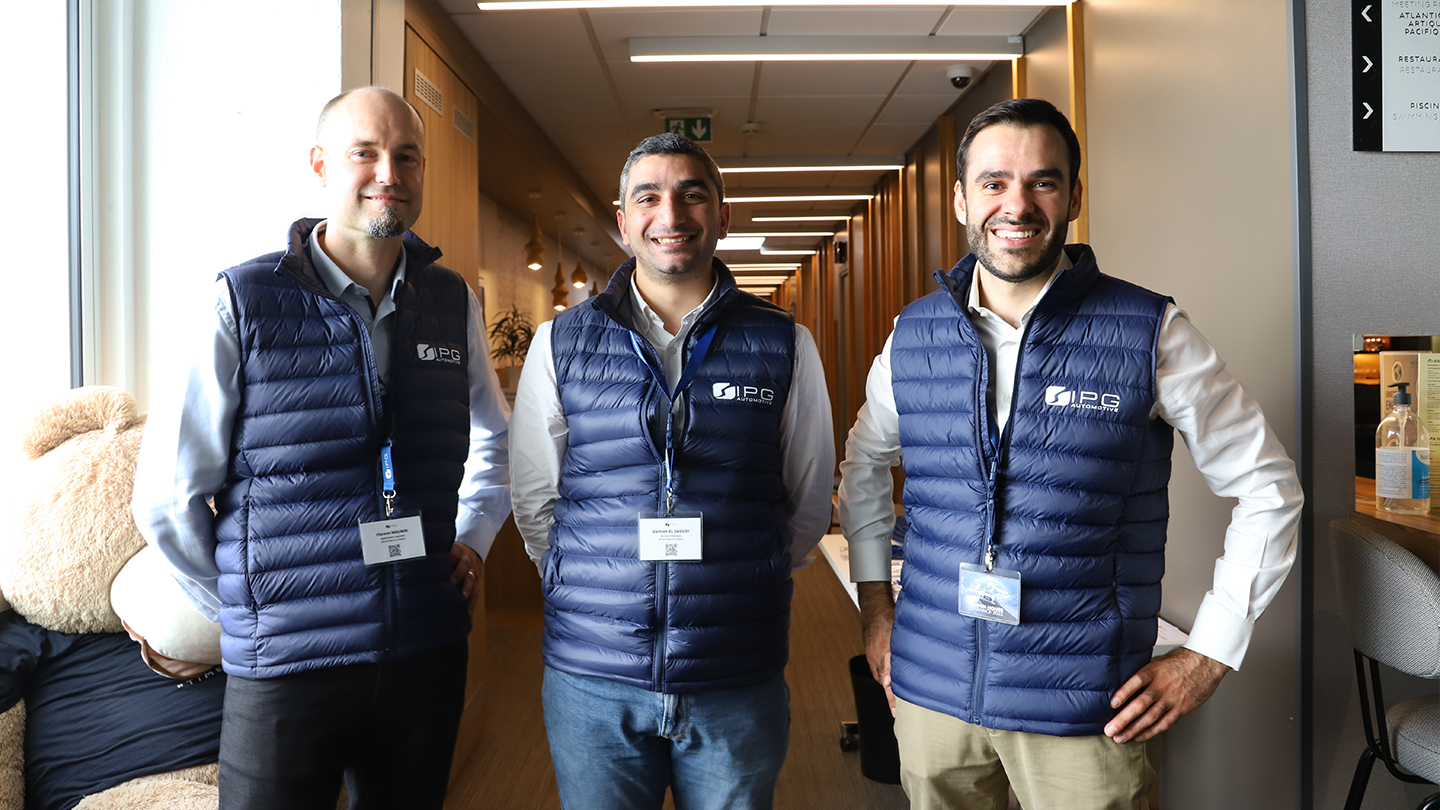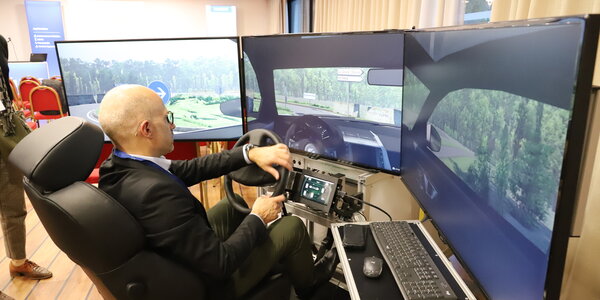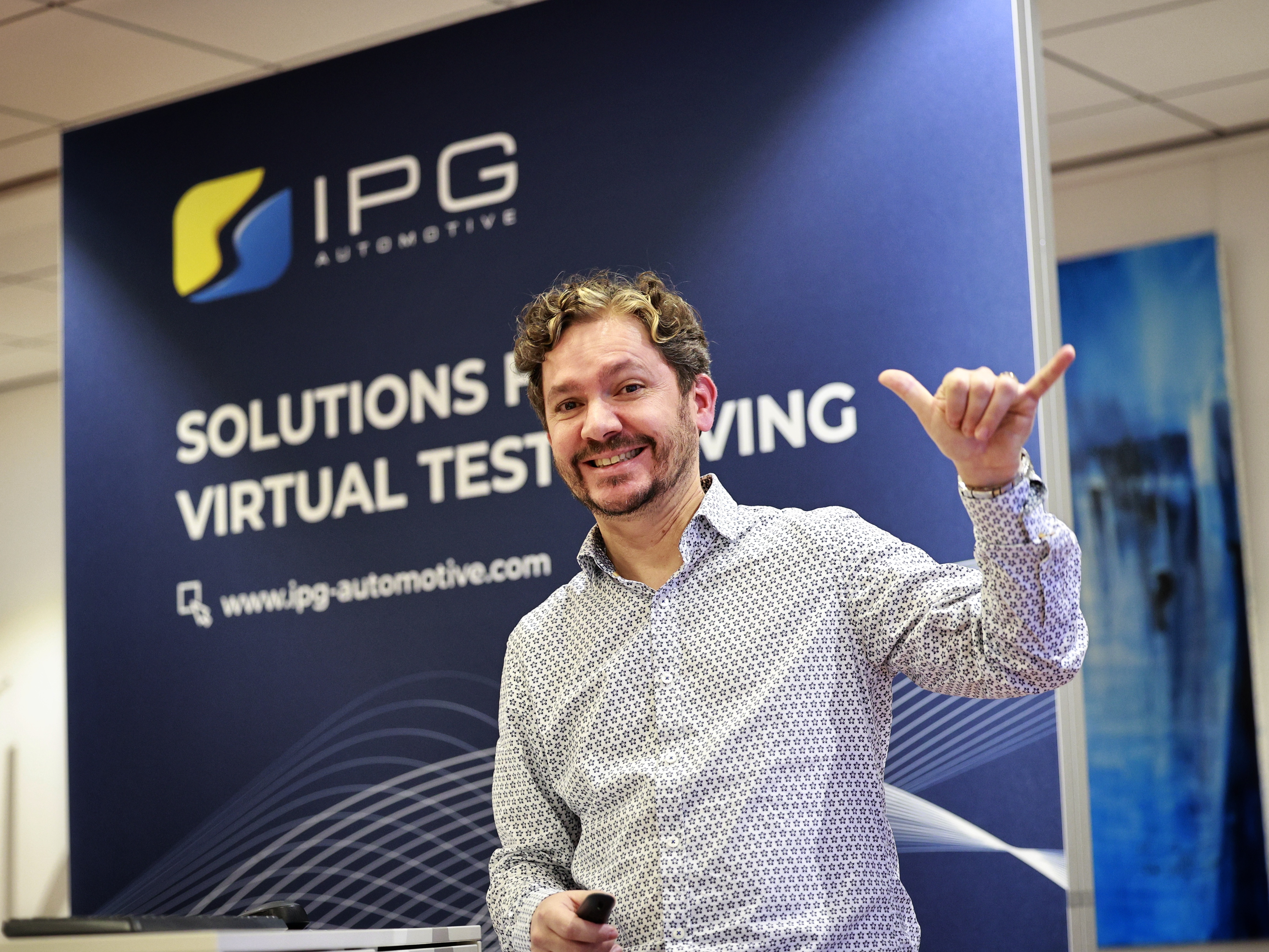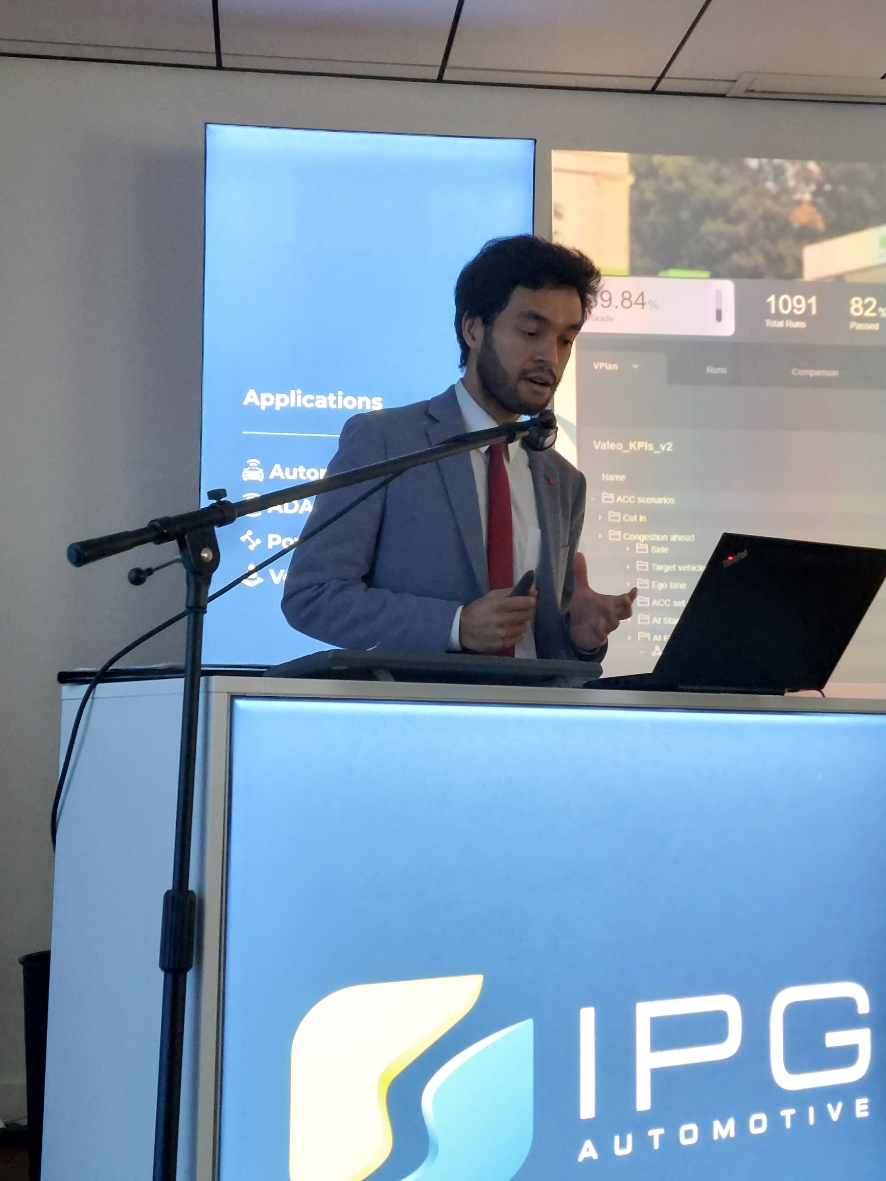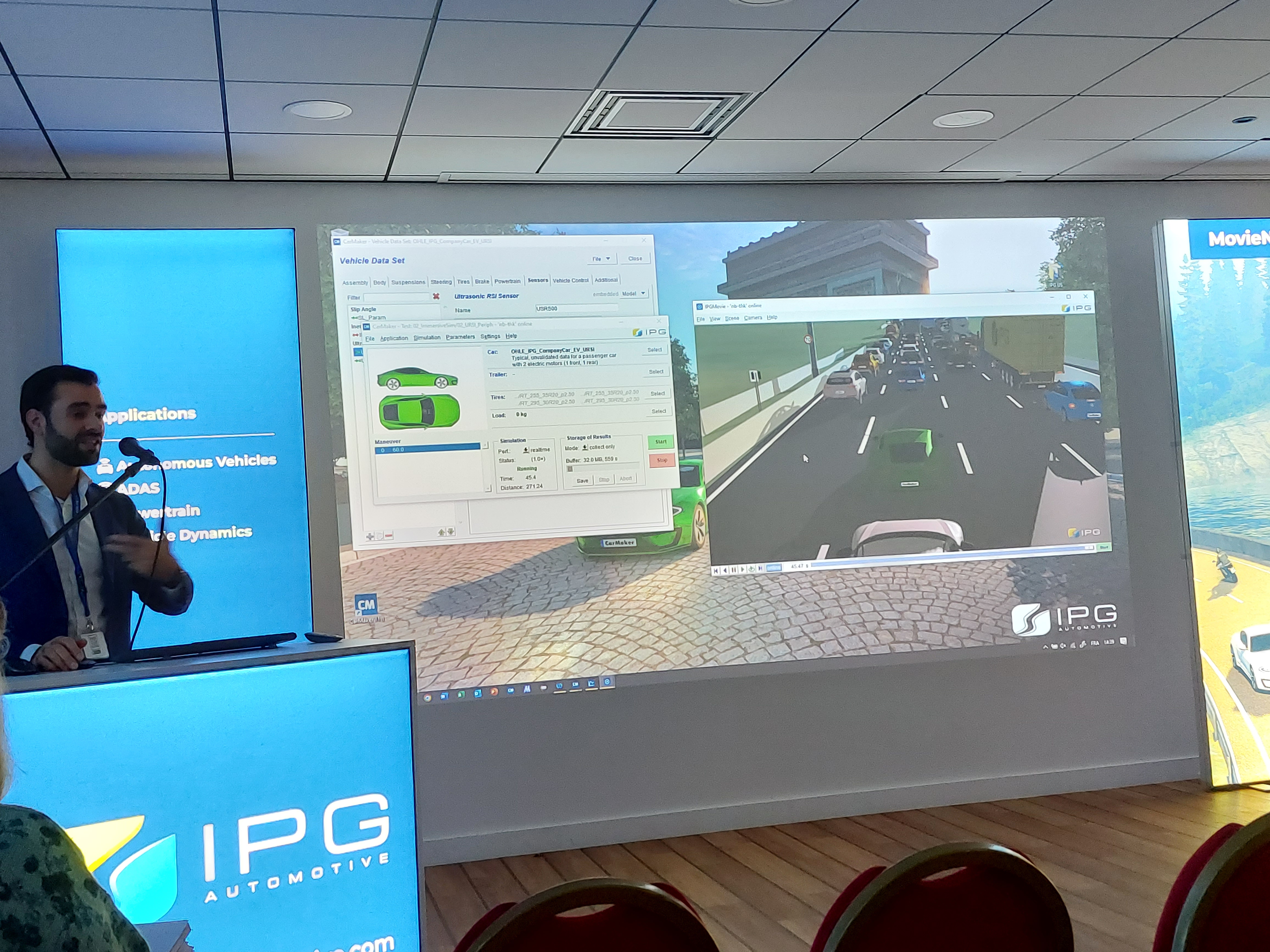
Recap of Open House France 2025
The fourth edition of Open House France was held on June 18, 2025, and welcomed 60 participants. Organized under the motto “Virtual in Process, Real in Progress – Shift Left to Save Costs and Time,” the event was rich in discussions about more efficient and increasingly virtual development processes, aiming to master today’s industry challenges.
The event began with a warm welcome and introduction by Sylvain Chazot, Managing Director, and Steffen Schmidt, President & CEO. Steffen Schmidt presented the company’s vision and strengths that will lead corporate action in the years to come. Sylvain Chazot explained how IPG Automotive can support the ongoing transformation leveraging its strong partner network, and why the shift-left approach, virtual validation, and agile development processes are key strategies to master the change.
Electronics Digital Twins – The Future of Efficient Software-Defined Vehicle Validation
Christen Decoin, Executive Director of Product Engineering and Solutions for Systems Software at Synopsys, showed how electronic digital twins are revolutionizing the validation of software-defined vehicles (SDVs). He highlighted the performance capability of virtual ECUs (vECUs) at different abstraction levels, in which production code is run in a simulated environment. This enables a variety of tests to be carried out at an earlier stage of development. The use of electronic digital twins in a virtual vehicle within a virtual environment enables automotive software to be developed faster, more reliably and in a highly automated way. Ultimately, this reduces development times while meeting the most stringent safety and quality standards.
Session 1: Reduce Warranty Costs with Rapid Software Validation
Thomas Karasiewicz and Florent Maurer, Application Engineers at IPG Automotive France, presented the shift-left approach aimed at meeting the growing complexity of vehicle development through earlier and more frequent iterations.
They outlined a continuous development process, from using vECUs in the cloud to rapid HIL farm testing to VIL testing. This comprehensive approach accelerates software validation, while reducing warranty costs and increasing the robustness of embedded systems.
Session 2: IPG Automotive as a Comprehensive Solution Provider
This session showed how the releases 13.1 and 14.0 of the CarMaker product family speed up development thanks to new features such as weather effects management, V2X communication, new sensor models, vehicle dynamics, and powertrain, among others.
Gabriel Seror and Nicolas D'Angelo presented these software innovations, while Daniel Zalghout introduced VIRTO, the virtual vehicle development tool suite, detailing its key functionalities and a major new feature. Finally, Florian Weindel unveiled IPG Automotive's new hardware products. He presented a hybrid version of the Xpack4, combining the advantages of precise IO interfaces with a powerful real-time PC.
Soluzioni ingegneria: On-board tire identification for off-highway applications on road and soft soil surfaces
Christian Pagliara, Leading Engineer and Carolos Jiénez Arrieta, Application Engineer at Soluzioni Ingegneria presented a method for characterizing agricultural tires on the road, in both longitudinal and lateral directions. Its reliability was demonstrated by comparing results with measurements from on-board sensors. Tests on asphalt and plastic soil illustrated the differences in tire behavior on different surfaces.
Tempero: OSCFuzzer: A new generation of testing tools for automated driving
Youssef Hamadi, co-founder of Tempero, presented OSCFuzzer, a scenario testing engine based on intelligent fuzzing, a method originally developed for software testing. By specifying high-level test properties (e.g. safety, comfort, etc.) in signal temporal logic (STL), the user defines what to test. The fuzzer then autonomously explores the scenario space and targets critical edge cases. Powered by a combination of optimization, learning algorithms, and formal methods, OSCFuzzer automatically identifies and synthesizes system vulnerabilities (e.g. via decision trees, heat maps, etc.), while adapting to available computing resources (local machine, cluster, or cloud).
In collaboration with IPG Automotive and its CarMaker simulation software, this solution offers a fast, effective, and transparent way to probe the limits of automated driving systems.
Lighting for ADAS: Linking optical design, software development, and regulatory compliance using physical simulation in virtual testing
Killian Hutchinson presented how Ansys, in collaboration with IPG Automotive, is using its AVxcelerate, Speos, and Zemax tools to simulate the design and validation of ADAS intelligent headlights. This approach reduces the need for physical prototypes, speeds up software validation, and ensures compliance with standards such as FMVSS 127.
UTAC: Virtual Testing for Euro NCAP with UTAC Scoring Set
Sylvain Chazot, Managing Director at IPG Automotive France, and Brieuc Pinsard, Simulation Engineer at UTAC, presented the UTAC Scoring Set Europe 2026: a new-generation virtual test suite designed to meet the rigorous requirements of the Euro NCAP 2026 protocol for active safety.
Developed in close collaboration with UTAC, a laboratory accredited by Euro NCAP since 2001, this solution provides early access to the 2026 protocol, reliable simulation via the CarMaker simulation platform, automated scoring logic validated by UTAC, and seamless integration into existing development workflows.
The strategic partnership boosts innovation to accompany the industry towards a safer, faster, and more compliant mobility.
Valeo: Digital Twins for safe and scalable Driving Automation: An industry perspective
Keilatt Andriantavison, Autonomous Driving & ADAS Team Leader at Valeo, presented how simulation is redefining the way automated driving systems are designed, tested, and validated in response to increasingly stringent regulatory requirements and consumer testing protocols.
Visitors were able to discover IPG Automotive's latest solutions, including Compact HIL + vECU, Rapid HIL, Data Replay with SensInject, the VIRTO tool suite, and the new Xpack4 hardware for HIL testing.
Partners ANSYS, IAV, ROHDE & SCHWARZ, SOLUZIONI INGEGNERIA, and SYNOPSYS also presented their innovations, completing the simulation and test ecosystem around ADAS and automated driving.
